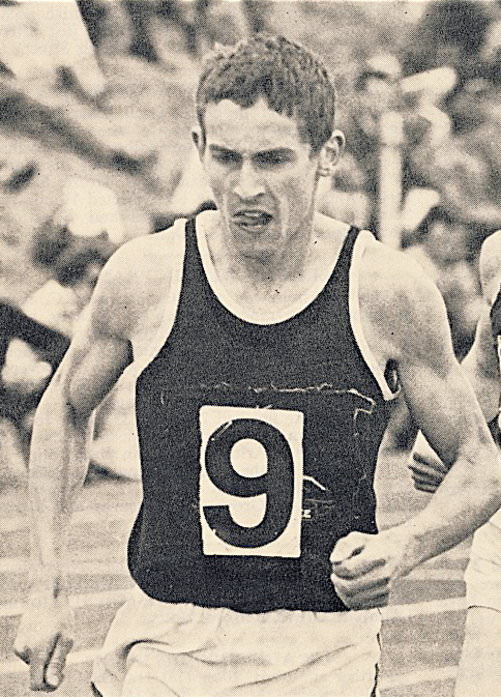
Ian Stewart Profileb. 15 Jan 1949 A cursory review of Ian Stewart’s running career would suggest that he was a teenage prodigy. He set a UK age-best for 2 Miles at 16 and then Junior European records for 3,000, 2 Miles, 3 Miles and 5,000. And the next year, as a first-year Senior at age 20, he was European champion at 3,000 indoors and at 5,000 outdoors. The following year he beat the two greatest distance runners of the 1960s, Ron Clarke and Kip Keino, to win the 1970 Commonwealth Games 5,000, clocking the third-fastest time ever and setting a European and UK record.
Lasse Viren Profile b. July 22, 1949 This great Finnish runner will not be remembered for his three world records. Rather, his name will always be associated with the four Olympic gold medals he won at two consecutive games in the 5,000 and 10,000. Lasse Viren’s wins in Munich in 1972 and in Montreal in 1976 were controversial as he rarely showed top form in other races. But he was only interested in the major meets and had the discipline to train for long periods without peaking or racing at his optimum level. New Zealand coach Arthur Lydiard has paid tribute to Viren’s “systematic training” and has called him “perhaps the finest distance runner the world has ever seen.” (Garth Gilmour, Arthur Lydiard, p. 149) American Frank Shorter, who raced against him and trained with him on occasion, saw Viren as the complete runner: “He has had everything it takes to win—the talent, the intelligence, the determination, the discipline, and in innate tactical sense of his competitors’ weaknesses.” (Olympic Gold, p. 107)

Marty Liquori Profile b. September 11/1949 Marty Liquori in full flight, still viewable on the Internet, has to be one of the finest sights in competitive running. He appeared on the running scene in 1967 as the third American high-schooler to break the 4-minute mile. The 17-year-old from New Jersey was only seventh in the Bakersfield, California, race and finished 8.7 seconds behind the winner Jim Ryun, who broke the world record with 3:51.1. Within two years, this talented runner was defeating Ryun in major races. Under the coaching of Jumbo Elliott at Villanova University, the dedicated Liquori quickly emerged as the world’s top 1,500 runner in 1969. A fierce competitor, Liquori looked a sure bet to dominate the 1,500 for many years. But this never happened. His harsh training schedules and frequent indoor competition led to a string of injuries that kept him out of some major competitions. And although there were many really fine performances throughout the 1970s—he was the world’s number one over 5,000 in 1977—Liquori never quite fulfilled his early promise, and he ended his long career without a major title.